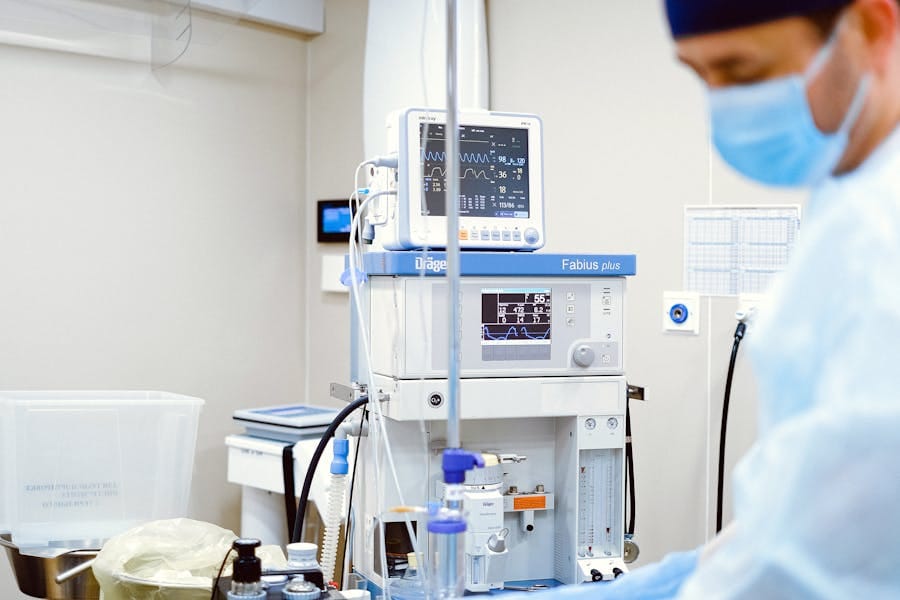Medical testing has undergone a tremendous transformation in recent years, largely driven by advancements in technology. These innovations have improved the accuracy and speed of diagnoses and expanded the range of tests available to healthcare professionals.
With the advent of artificial intelligence, telemedicine, and sophisticated laboratory equipment, the future landscape of medical testing looks promising. In this article, we will explore some of the key ways that technology is reshaping this field.
The Rise of Telemedicine
The rise of telemedicine has significantly impacted medical testing by providing remote access to healthcare services. Patients can now consult with healthcare providers from the comfort of their homes, reducing the need for in-person visits.
This change benefits both patients, who can save time and money, and healthcare providers, who can streamline their services. Telemedicine allows for quicker interpretations of test results and greater patient engagement.
Patients can receive immediate feedback on their lab results, which leads to faster decision-making regarding treatment. The convenience of telehealth platforms has made it easier for patients to undergo routine medical testing, such as blood pressure monitoring or blood glucose tests, thus promoting preventive care.
Telemedicine opens doors to populations in remote areas who may have limited access to healthcare facilities. With advancements in mobile health applications, patients can now perform certain tests and send the data directly to their healthcare provider for evaluation. This shift is proving to be a game-changer in how healthcare is delivered.
Toxicology Testing and Its Importance
Toxicology testing plays a pivotal role in modern medicine, helping identify harmful substances that may affect patient health. The integration of advanced technology has transformed toxicology, making it more efficient and accurate.
Laboratories now utilize sophisticated analytical methods, including mass spectrometry and high-performance liquid chromatography, to detect drugs and toxins in biological samples. The team behind lynkdiagnostics.com says that toxicology testing is critical in various fields, including forensic science, drug testing, and clinical diagnostics. With the prevalence of substance abuse, there is a growing need for accurate testing methods to identify illicit drugs in a patient’s system.
Rapid advancements in technology have led to the development of point-of-care toxicology tests that can deliver results in real-time. These innovations facilitate timely medical interventions, which can be vital in emergencies. As the healthcare sector continues to address challenges related to toxic exposure, the evolution of toxicology testing will remain instrumental in improving patient care.
AI and Machine Learning in Diagnostics
Artificial Intelligence (AI) and machine learning are revolutionizing the diagnostic process through data analysis and pattern recognition. These technologies can analyze vast amounts of medical data far more quickly than human professionals, identifying trends that may not be immediately apparent.
AI algorithms can analyze imaging studies for early detection of diseases like cancer or other abnormalities. Machine learning models can predict patient outcomes based on historical data, helping doctors determine the most effective treatment plans.
As these technologies continue to develop, they promise to improve the accuracy of medical testing dramatically. Healthcare providers increasingly adopt AI-driven tools to enhance their diagnostic capabilities. This trend ensures that diagnostics are faster and minimizes human error, yielding higher patient satisfaction rates.
Point-of-Care Testing
Point-of-care testing (POCT) allows medical professionals to conduct rapid tests at the patient’s location rather than sending samples to a laboratory. This approach has become particularly vital in urgent care settings, where timely results can make a significant difference in patient outcomes.
Technological advancements have made POCT devices more accessible and user-friendly, allowing healthcare workers to conduct a variety of tests ranging from blood glucose levels to infectious disease markers. The benefits of POCT are evident in emergency departments and during pandemics, where immediate results are critical for effective response and management.
As this technology evolves, it provides convenience and an opportunity to expand testing capabilities in remote locations, ensuring more patients receive timely medical attention. In essence, POCT is changing the way medical testing is integrated into everyday healthcare.
The Impact of Biomarkers
Biomarkers play a role in modern medical testing by enabling personalized treatment plans for patients. These biological indicators can provide detailed insights into disease states, guiding healthcare providers in making informed decisions.
With advancements in omics technologies, such as genomics, proteomics, and metabolomics, biomarkers are now integral in diagnosing conditions ranging from cancers to autoimmune disorders. Healthcare professionals leverage these biomarkers to assess an individual’s unique response to treatments, allowing for precise interventions.
The increased focus on personalized medicine results in better patient outcomes. As research continues to uncover new biomarkers, the landscape of medical testing will further adapt, creating a more tailored approach to healthcare.
Wearable Technology and Remote Monitoring
Wearable technology is changing how patients monitor their health outside clinical settings. Devices such as fitness trackers and smartwatches can continuously gather health data, providing insights into vital signs, activity levels, and even blood sugar levels.
This wealth of data enables individuals to take a proactive approach to their health. The rise of telehealth integrates wearable technology, allowing healthcare providers to track patient metrics remotely.
Real-time data can alert medical professionals about any deviations or health concerns, paving the way for timely interventions. This shift improves patient engagement and enhances the effectiveness of medical testing by making monitoring more accessible.
As wearable technologies evolve, we may see even more sophisticated capabilities, leading to a further transformation in how medical testing and patient care are approached.
Medical testing is at a turning point, driven by technological advancements that enhance diagnostic accuracy, streamline procedures, and promote better patient outcomes. From effective use of telemedicine to improved toxicology testing and the use of wearable technologies, these trends indicate a future where healthcare is more personalized and accessible.


